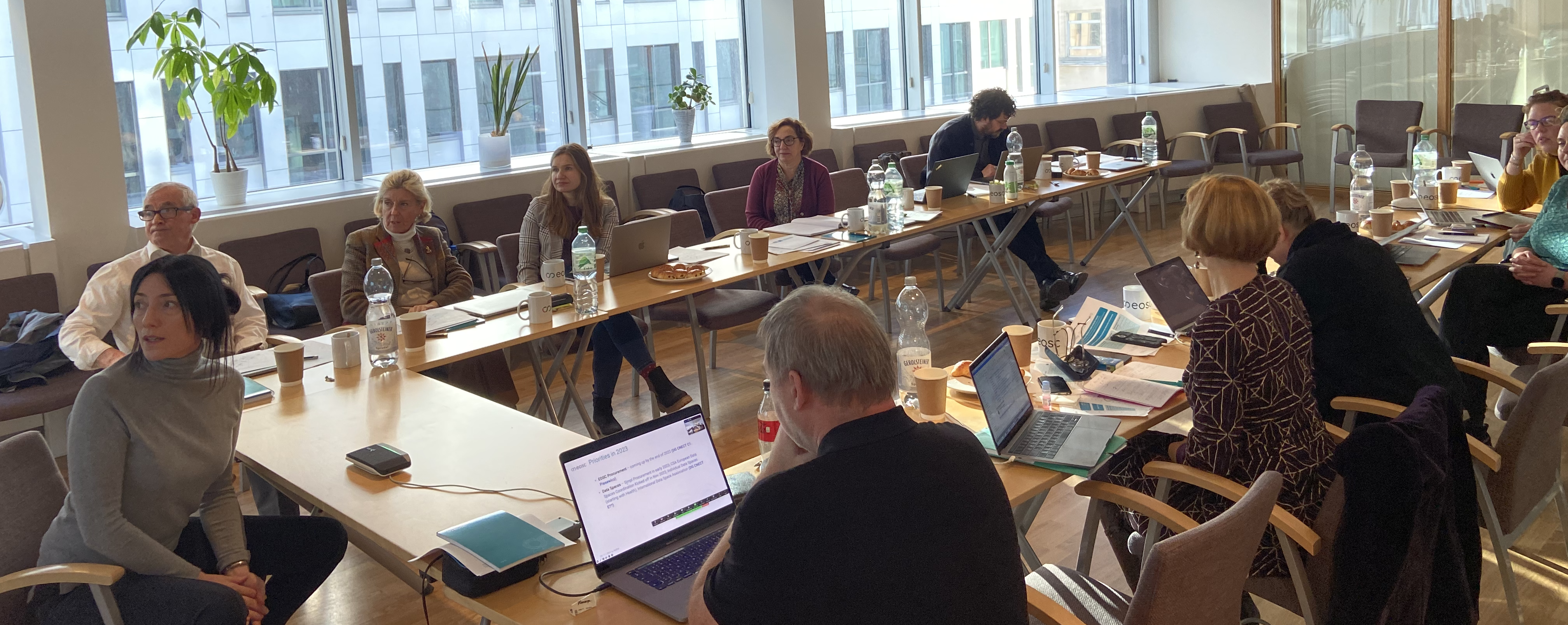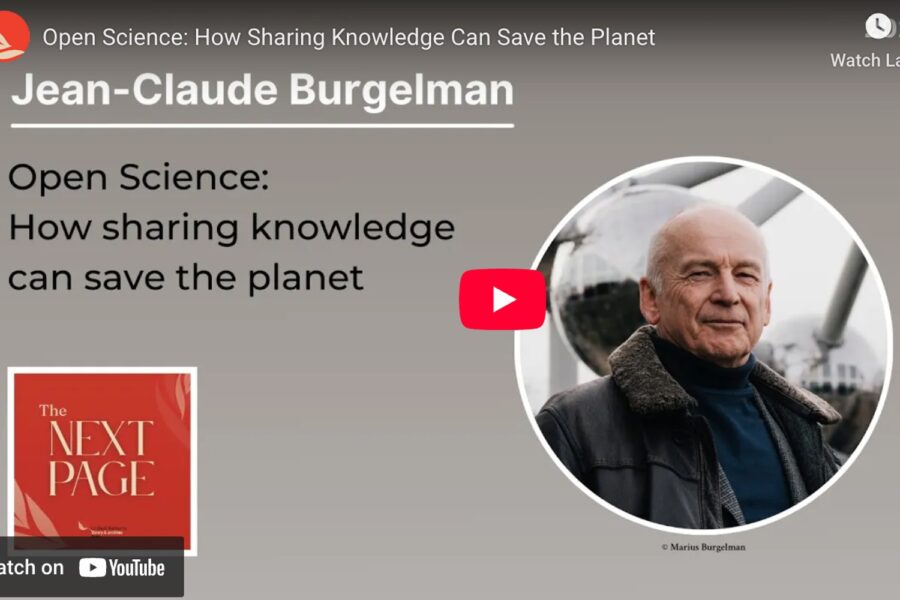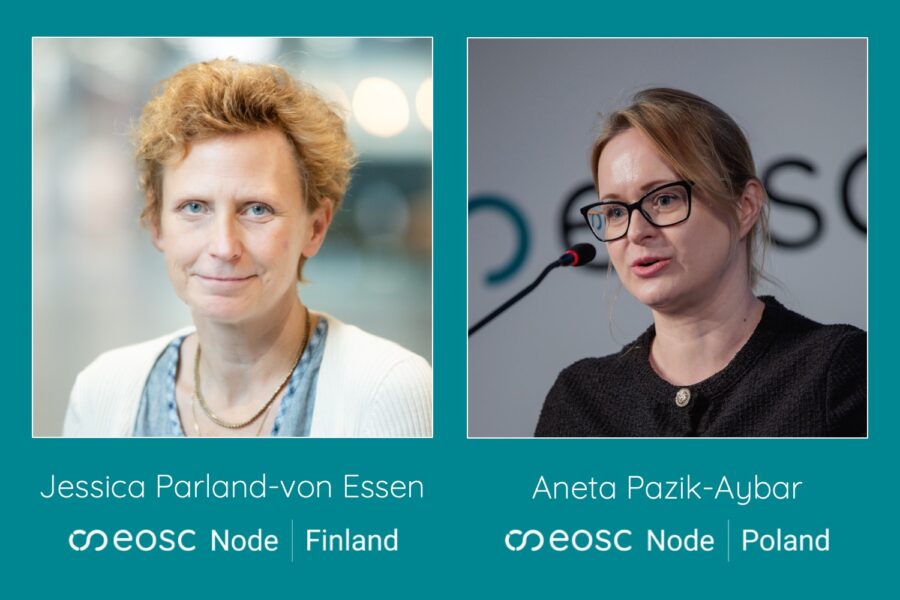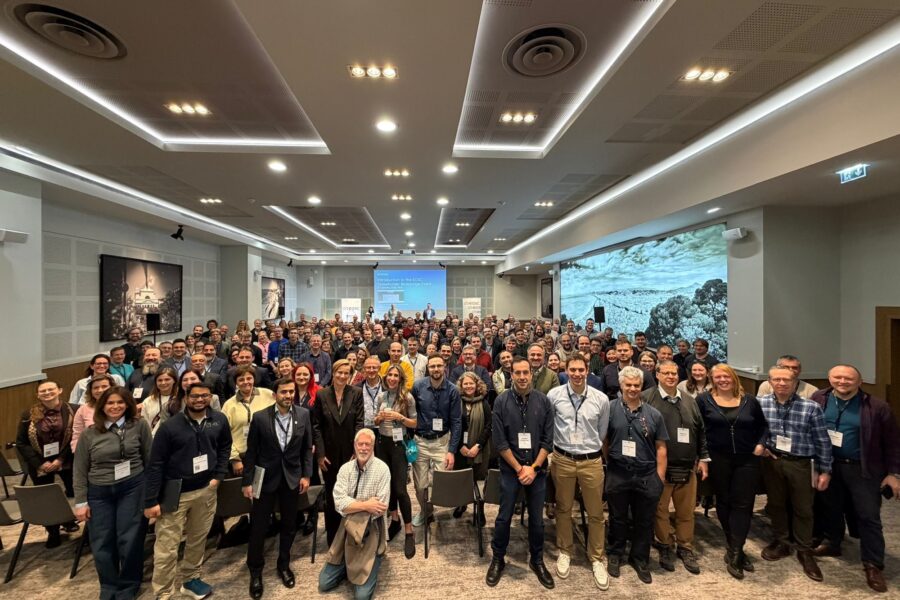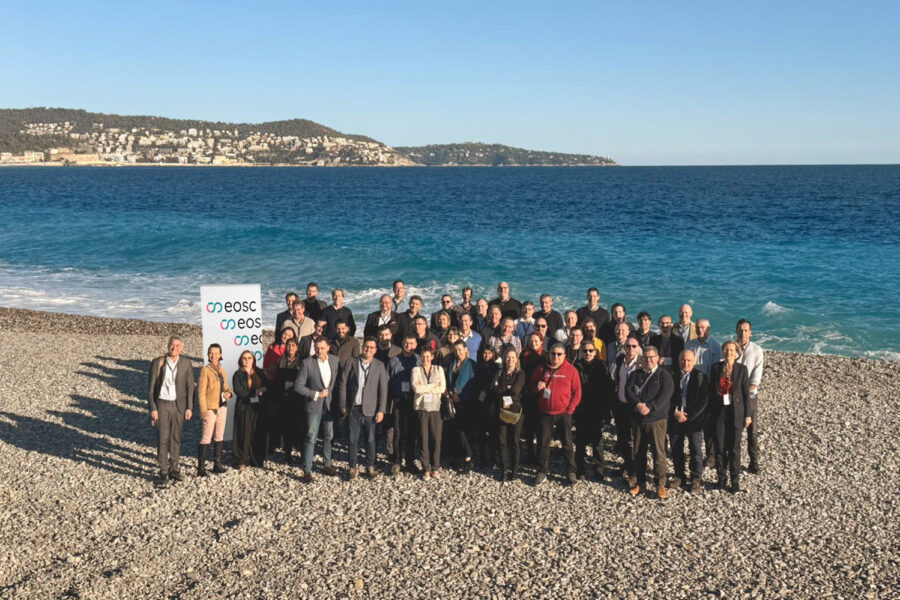The EOSC Association Secretariat and Board of Directors met Friday, 16 December, in Brussels for a face-to-face strategy workshop at the EOSC-A offices on rue du Luxembourg.
This final meeting of the year was structured around four sessions, each representing a 2023 priority area for the Association and each facilitated by selected members of the Board and Secretariat.
First on the agenda was to advance the discussion around the so-called EOSC “reflection paper”, EOSC operations and evolution post-2027, a four-page strategy document developed with input from the European Commission’s DG RTD. The document was taken up for discussion at the EOSC Partnership’s Tripartite Event in Prague last month, and today the Board and Secretariat continued the discussion in preparation for a further revision of the document, which is currently under the scrutiny of the Association’s members. Key to the post-2027 planning for EOSC is the question of how to plan for the evolution of the governance and funding models that will support the operations and sustainability of the “EOSC Federation”. Anticipating where the initiative will stand five years hence, the three parties to the Partnership must also plan for its integration into the Commission’s 10th Framework Programme.
The second session put the 13 EOSC-A Task Forces front and centre, with an open discussion on how to provide these critical volunteer contributors with the proper support and guidance during the second year of their mandate. The recent onboarding of new Task Force Support Officers has given a stronger structure to the work of the Task Forces, but more coordination is forthcoming. A key to streamlining the activities of the Task Forces are the directors of the EOSC-A Board, who serve a steering function relative to the Task Force charters and their deliverables. A meeting between the board liaisons and the Task Force co-chairs has been scheduled for February.
Session 3 focused on EOSC-A’s position relative to related European strategic initiatives, including Data Spaces and Partnerships. For 2023, the Board has prioritised establishing a regular dialogue between EOSC-A and the European Data Spaces, in particular the Health Data Space (as the most mature), as well as with the European Partnerships for Metrology and for EuroHPC. Developing the EC’s vision of EOSC as a recognized cross-cutting European Data Space will impact and be impacted by the development of each of these sometimes parallel and sometimes complementary initiatives underway across the continent.
The Friday workshop then moved on to the evergreen topic of the development of the Partnership’s Strategic Research and Innovation Agenda (SRIA), laying out the road to SRIA 2.0. The first step to the first major revision of EOSC’s guiding document is the development of the SRIA’s Multi-Annual Roadmap (MAR) for 2025-2027. Work is underway to develop a draft of the updated roadmap by summer. The members of the Board and Secretariat broke out into three parallel sessions, each devoted to one of the three primary objectives of the SRIA, and proposed additions, deletions and refinements intended to advance the development of the document toward a planned 2023 consultation with the EOSC Association members.
Finally, updates were provided on progress made in the elaboration of the Association’s bylaws, its fee model and its policies, and the day closed with preparations for the EOSC Partnership meeting that took place the following week.
Said EOSC-A President Karel Luyben, “Today was a big step forward for the collaborative work that bridges the Association’s operations in the Secretariat and the Board’s strategic planning function. Coming together at EOSC-A’s office in Brussels, where the group was able to sit together and align strategy with operations, has served to provide a welcome retrospective on a (too) fast-paced 2022, and it has helped to set priorities in the agenda for the pivotal year ahead of us.”
